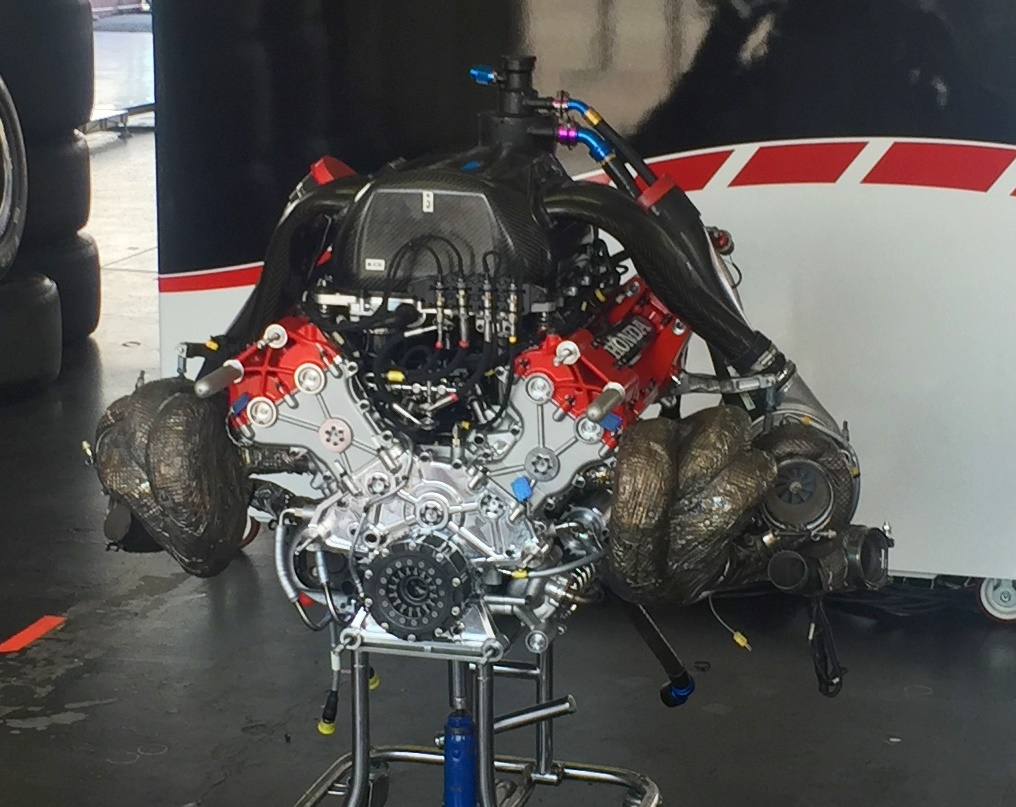IndyCar Manufacturers To Scale Back Engine Development In 2018
 |
| Honda IndyCar engine |
With the next set of engine regulations in the works, the Verizon IndyCar Series, Chevy and Honda have announced that both manufacturers will step back from the full slate of engine development options for the 2018 race season, as reported by RACER.
Based on the current 2.2-liter Twin-Turbo V6 engine formula (created in 2012), odd-ending years like 2017 called for limited R&D, while even years allowed teams to update and replace cylinder heads, turbos and induction systems, camshafts, and other core pieces. Always available for upgrades are pistons and valvetrain components.
Because of the next set of engine rules are in the works, however, Chevy and Honda will stick to the restrictive R&D plan typically followed in odd years. This program will stay in place until officials implement the new regulations in 2020 or 2021.
“Originally, we expected four years with this formula, then something new for the fifth. We are going into the seventh year of competition for this engine. They were never intended to run at the power levels we are seeing now, that we've increased to now. So we looked at it and decided for the next two years until we do a new engine, let's hold back on the amount of development that we can do, and not waste money," HPD race team leader Allen Miller told RACER.
According to RACER, 2020 is the target year for a new formula if a third manufacturer joins the series. If Chevy and Honda are the only two brands to remain, IndyCar will likely extend the deadline to 2021.
More news of the next engine regulations will come soon, says IndyCar Competition President Jay Frye.
"We hope to have some sort of news on this early in the year," Frye said to RACER. "And we are in agreement that the power piece is what's next in the equation. Everybody wants more power, so that's what we're working on giving our fans with this plan. 'Fast and loud,' brother, that's the thing we're going for."
